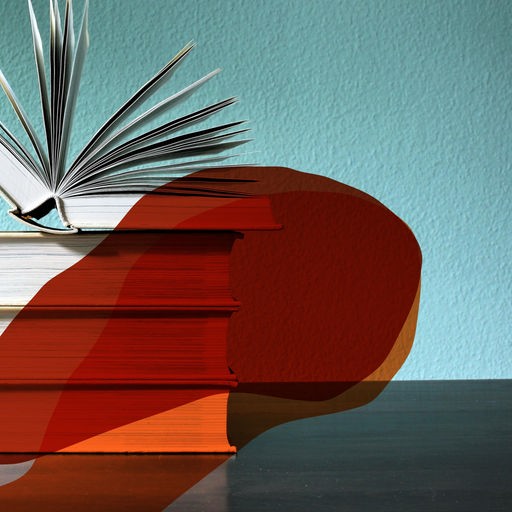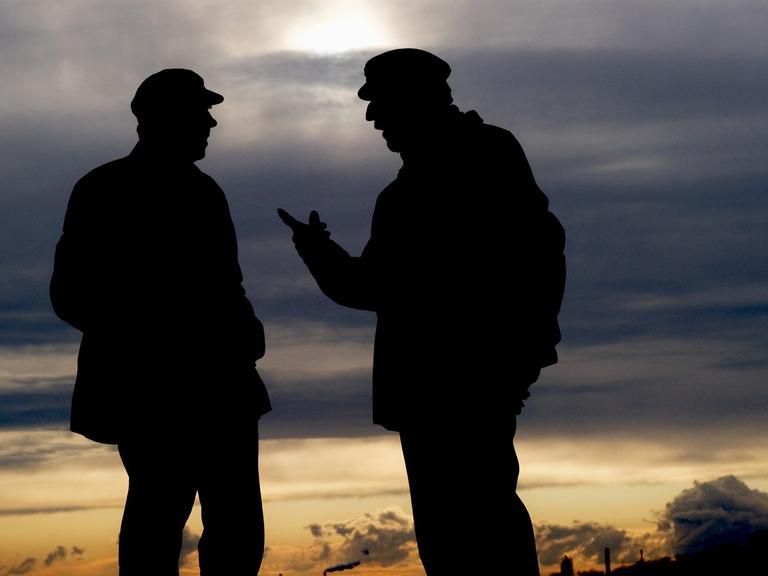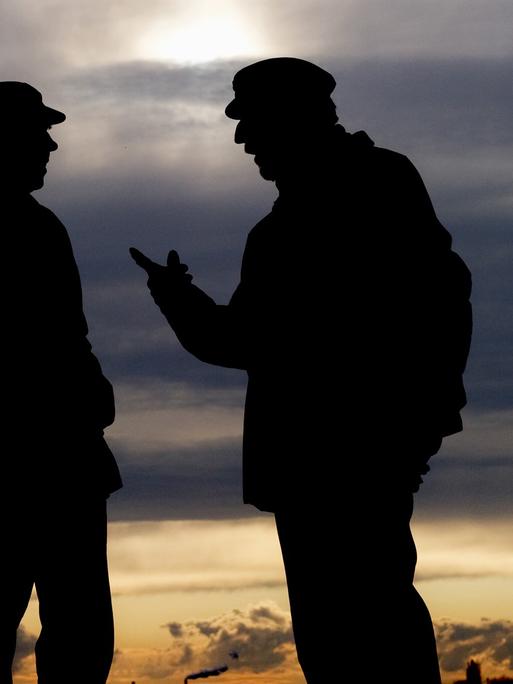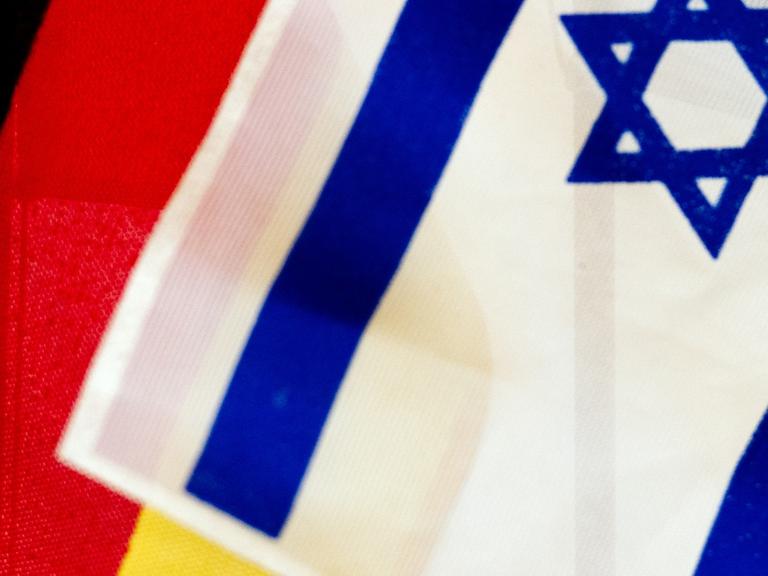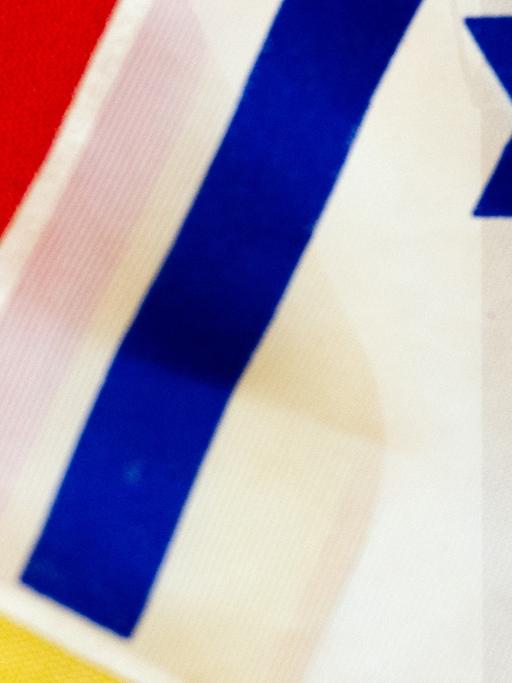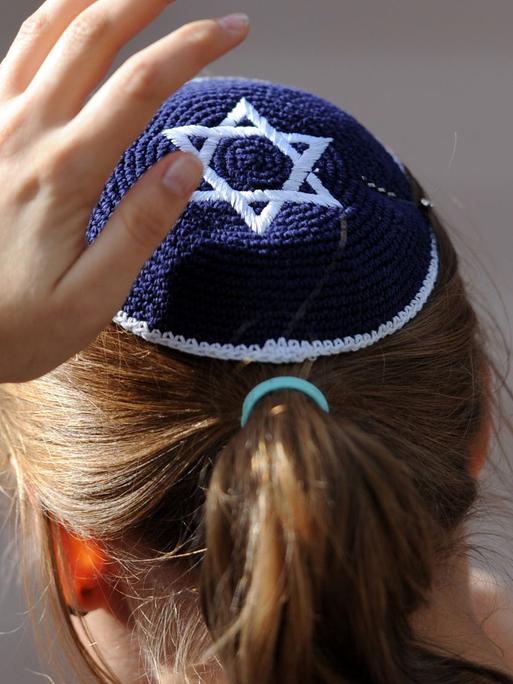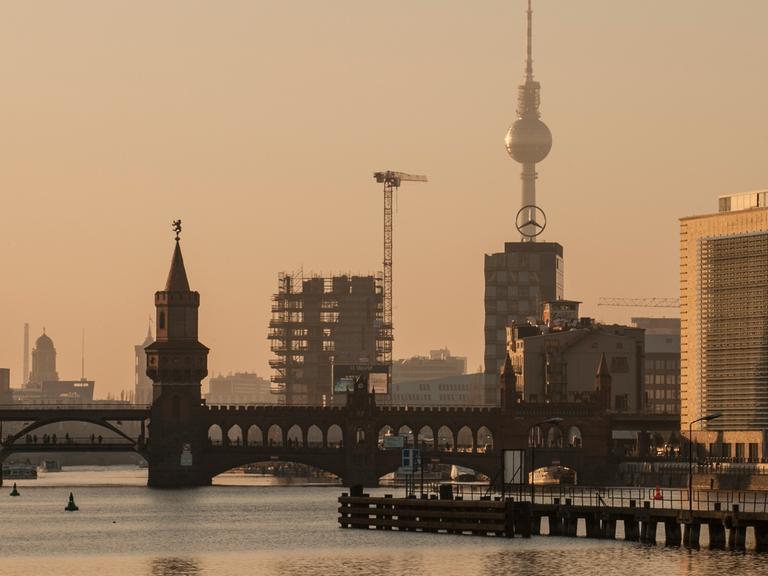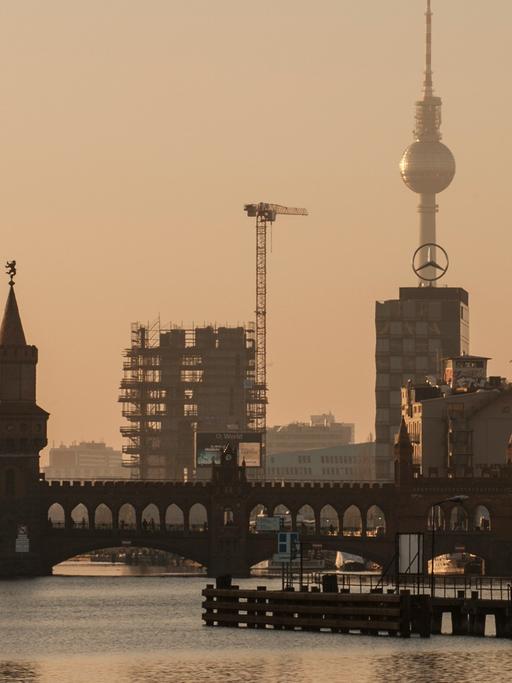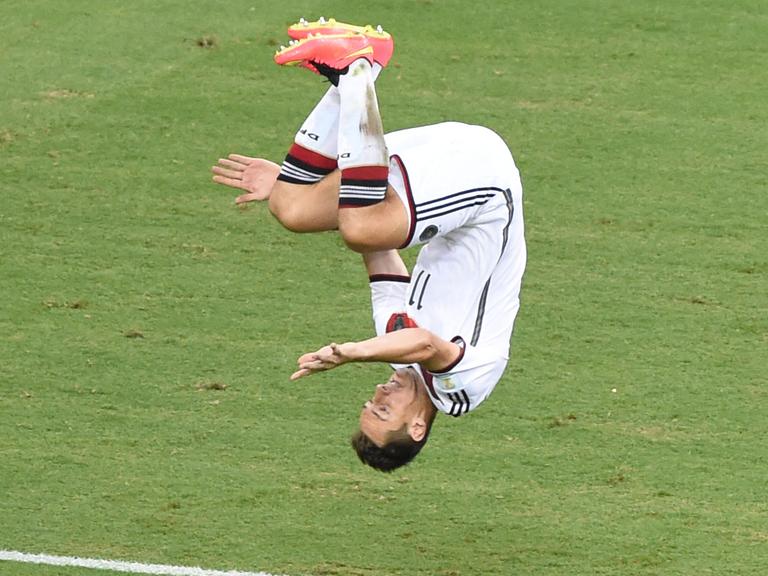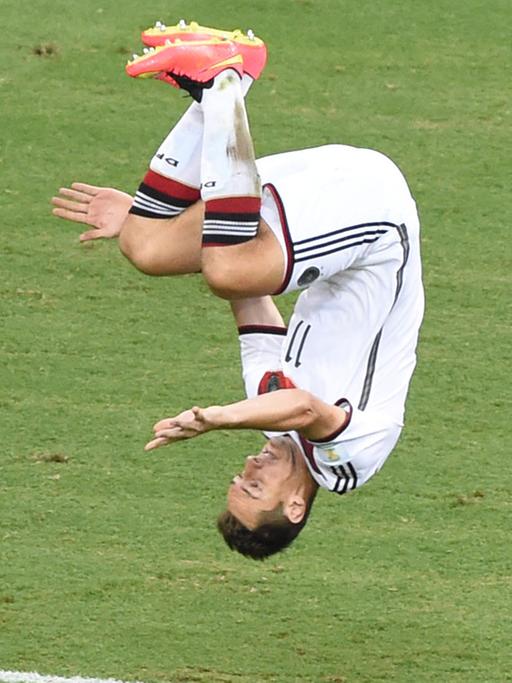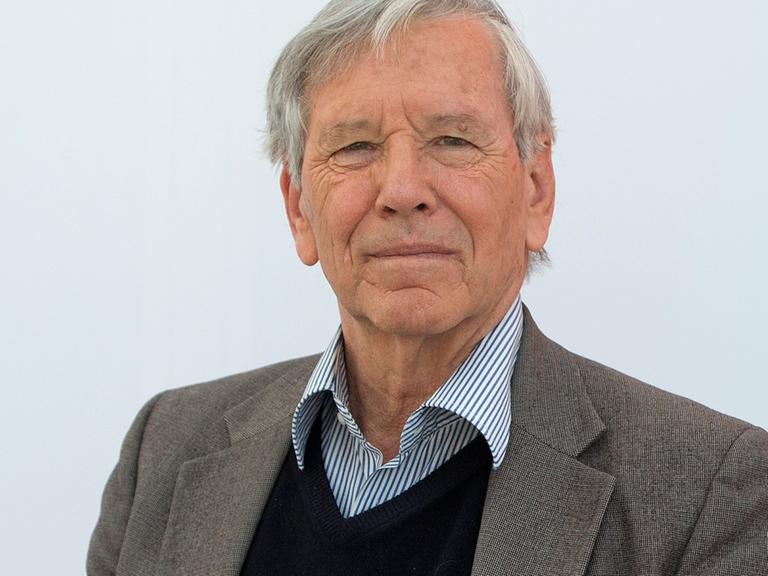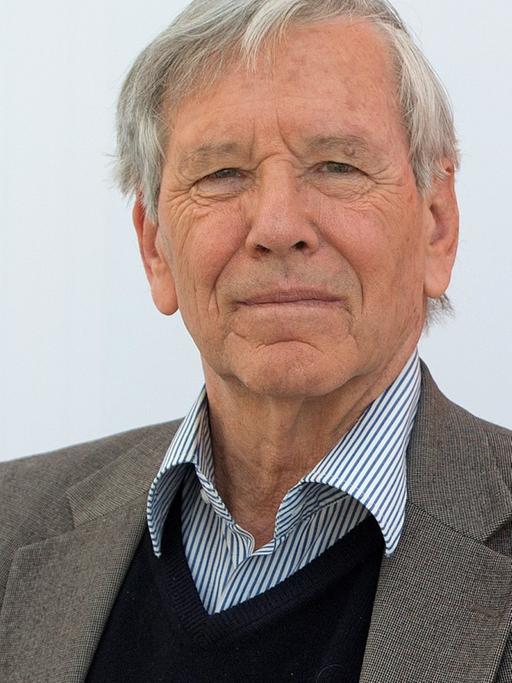Zwei Völker, eine Wunde
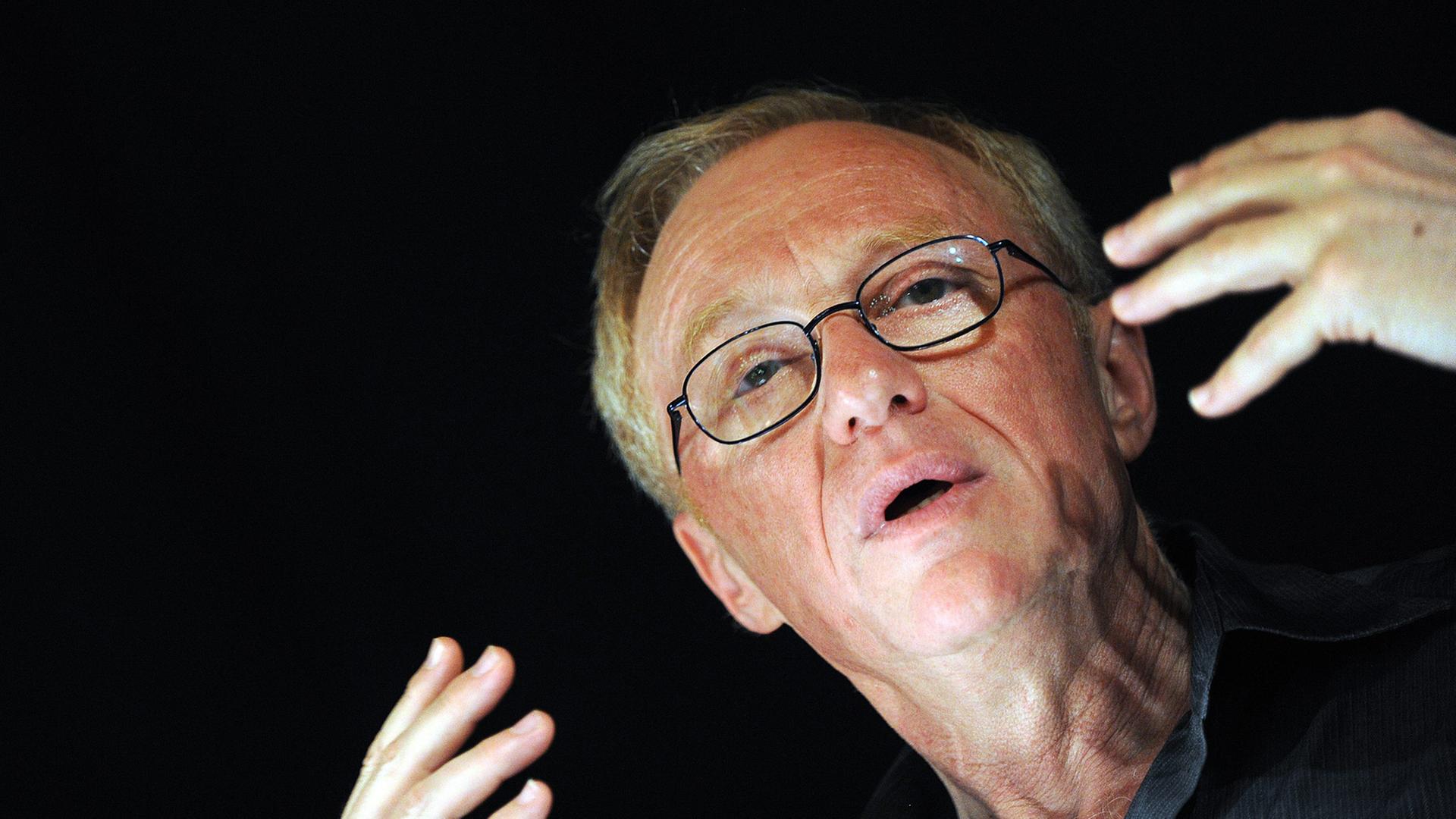
In der Rubrik "Originalton" schildern israelische Autorinnen und Autoren ihre Sicht auf Deutschland. David Grossmann (geb. 1954) erklärt, warum Deutschland für ihn nie ein Urlaubsland wird.
Die Deutschen gehören zu den ganz wenigen Völkern, die tatsächlich eine Art Seelenarbeit in Bezug auf den Holocaust geleistet haben. Ich kann das sonst kaum irgendwo erkennen. Und doch gibt es diesen Zwiespalt – in den Urlaub kann ich nicht nach Deutschland fahren.
Es ist immer noch ein Ort, an dem irgendetwas in mir ständig in Alarmbereitschaft ist. Vor allem die ersten zehn Jahre war das so. Inzwischen vielleicht etwas weniger, aber ich bin noch wachsam. Und im Urlaub möchte man nicht wachsam sein. Man will ihn nicht an einem Ort verbringen, der so von Geschichte durchtränkt ist, das Teile der Gegenwart darin untergehen.
"Ich glaube nicht, dass wir uns erholen können"
Aber wir halten es aus, die Wunde anzuschauen. Wir verleugnen sie nicht, wir wenden uns nicht ab. Wir denken nicht einmal daran, dass sie sich schließen könnte. Ich glaube nicht, dass wir uns wirklich erholen können.
Natürlich wollen die Menschen eine Art Fastfood-Gesundung, Heilung auf Rezept. Ich bin aber der Überzeugung, dass es Dinge gibt, die nicht heilen können. Und wir müssen uns mit der Idee anfreunden, dass wir die Last einer offenen Wunde im Verhältnis zwischen Israel, den Juden und den Deutschen immer in uns tragen.
Das ist Teil unserer Reife, der zwei Völker, die jedes in diesem Menschheitsverbrechen ihre Rolle spielten: die Juden als Opfer, die Deutschen als Täter. Aber da ist noch etwas: Es ist dem Menschen erlaubt, durch eine solche Wunde hindurchzugehen, gemeinsam zu arbeiten und auch Spaß zu haben. Das ist kein Verbrechen. Es sagt nur etwas über die Tiefe der menschlichen Natur. Wir haben auch diese Fähigkeit. Und in meinen Augen ist das etwas Großartiges.
Der Text im Original:
I feel that Germans are among the very peoples on earth, nations on earth, that really did a kind of mental work regarding the Holocaust. I don’t feel it in most other places. But there is this doubleness, because I still can not have a vacation in Germany. It is not a place of vacation for me. It is still a place, where a part of me is alert and is aware, maybe not alert. I am not alert anymore. I was alert in the first ten years. I am not alert anymore, when I am there. But I am aware. You know, when you go to a vacation, you don’t to be aware. You don’t want go to a place that is so immersed with history that in a way it buffers parts of the present.
We are able to stand here looking at the wound. We do not deny it, we do not turn our back on it, we do not even hope to recover from it. I do not think that we can really recover. Of course, people want to have a kind of a fast-food-recovery, recepy for recovery. I don’t believe. I think that some things, they have no recovery and we have to live with this idea that we have to carry the burden of a wound that will always remain open in the contact point between Israel and Jews and Germany. It is a part of our maturity as two peoples who each one had his role in this terrible human crime: we as victims, Germans as predictors, victimisers. And yet, there is something about mankind that allows it also to breach over such a wound; and to be able to work together and also to have fun together. It is not a crime. I mean, it says something deep also about us, about our nature of human beings. We have also this ability. And for me, there is, there is something great about this ability.
We are able to stand here looking at the wound. We do not deny it, we do not turn our back on it, we do not even hope to recover from it. I do not think that we can really recover. Of course, people want to have a kind of a fast-food-recovery, recepy for recovery. I don’t believe. I think that some things, they have no recovery and we have to live with this idea that we have to carry the burden of a wound that will always remain open in the contact point between Israel and Jews and Germany. It is a part of our maturity as two peoples who each one had his role in this terrible human crime: we as victims, Germans as predictors, victimisers. And yet, there is something about mankind that allows it also to breach over such a wound; and to be able to work together and also to have fun together. It is not a crime. I mean, it says something deep also about us, about our nature of human beings. We have also this ability. And for me, there is, there is something great about this ability.
